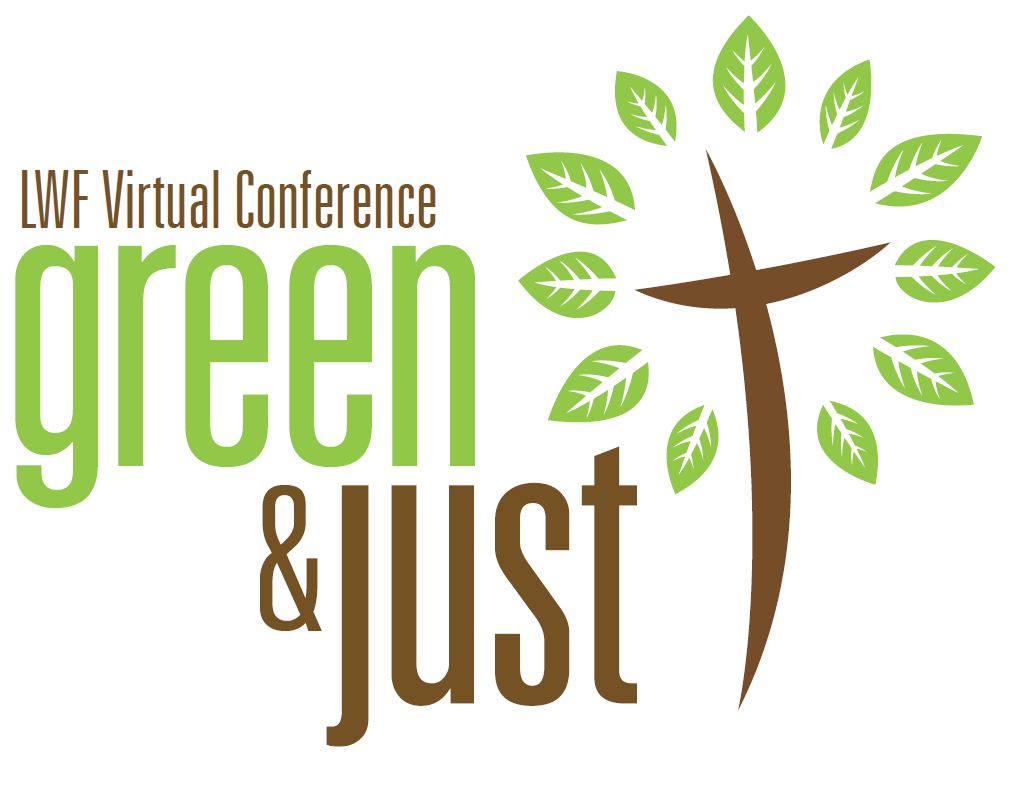- Name: Maggie .M. Mwape,
- Age: 27
- Function: Currently working with Youth Image Solutions – Director of Programs
- Country of origin: Zambia, Lusaka
- Church of origin: Mount Zion Christian Centre
I’m greatly humbled to be given an opportunity by the World Council of Churches and the Lutheran World Federation to be the only Zambian Youth to participate in the ‘Youth for Eco-Justice’ Program to be held in Durban-South Africa from 26th November, 2011 to 10th December, 2011. My interest in developing projects as a young woman has earned me merit as one of the most promising female leaders of Zambia, Africa and the World. I was the concept writer of the first ever National Youth Climate Change Conference Zambia - 2010. Apart from that, I have been behind some youth initiatives in regards to disaster risk reduction, climate change, and environment; and vulnerability risk assessments.
Zambia is a landlocked country found in the Southern Africa, with an estimated population of 12 Million, 65% being youth. This makes them to be a strategic partner in National Development. The total land area is 755,000 sq. Km and 7 Million hectares constitute gazetted forest area. The forest department has approximately 50 million hectares of forest, with an estimated deforestation rate of 250,000 to 300, 000 hectares per year. Undoubtedly, deforestation continues to be big a challenge in Zambia.
What is really important for your life?
Let us face it, young women remain the most vulnerable to poverty, gender based violence, exploitation, rape, climate change and other negative vices across the world. I would like to congratulate all young women in the world who have kept the fire burning demanding for space, true justice for gender equality and involvement fighting for environment and climate justice. I admit that I am a female and happy with it, so should a man be however, we can live side by side in respect and contribute to positive development.
At present, the most important thing for my life is the determination to face higher and stronger challenges with diligence, excellence, focus, hard work and honesty.
What are your wishes for the negotiations on Climate Change in Durban?
I’m a supporter of climate justice because climate change is a threat to humanity in modern times; hence need to save the child of Africa from carbon emission.
I believe that once many engage in preserving the environment and ensure that there is climate change mitigation, adaptation and call for true justice, then it is possible to win the battle against this gigantic and complex problem. As young women in Zambia, I am convinced that Climate Change is a huge ecological debt at present, and for the future generations of the developing world, and this will disproportionately bear for hundreds of years. It is unfortunate that developing countries such as Zambia face the greatest challenges in terms of the impacts of climate change and the capacity to respond to it. I believe that the changing climate is increasingly having disastrous effects on the poor people, and the existence of some poor African countries, while others face growing barriers to their efforts to achieve sustainable development. Reports of the Inter-governmental Panel on Climate Change (IPCC) state that Africa will suffer the most from the impacts of climate change, therefore our Zambian government and its development partners are to give this issue the urgency it deserves. I deeply feel threatened by the impacts and causes of Climate Change on the human and natural systems and firmly support the upholding principles of equity, human and eco rights in all processes of decision making and policy implementation on Climate Change.
Looking at the past COP reports;
The Cancun Agreement - COP16 in 2010 Mexico, all countries came to an agreement except Bolivia. However, the chair passed the decision anyway as the ‘Cancun Agreement’. The Cancun agreements make some small progress in all areas of LCA (Long-Term Corporative Action), but lack detail and do not address reducing emissions.
The Copenhagen Accord - COP15 2009 Denmark, when countries failed to come to an agreement, the USA, along with other countries, put forward this accord. It promises money to developing countries but does not bind developed countries to emission targets and lets them choose their own. Although very unpopular and not adopted by the UNFCCC, the Copenhagen Accord received 140 signatures. It was later revealed that many of developing county signatories were pressured into signing the Accord in order to get fast money from USA.
The Poznan Report - COP14 2008 Poland, the finishing touches were put to the Kyoto Protocol’s Adaptation Fund, with Parties agreeing that the Adaptation Fund Board should have legal capacity to grant direct access to developing countries. Progress was also made on a number of important ongoing issues that are particularly important for developing countries, including: adaptation; finance; technology; reducing emissions from deforestation and forest degradation (REDD); and disaster management.
The Bali Action Plan - COP13 2007 Indonesia, delegates agreed on a ‘Road Map’ that would take them to a global binding climate treaty to replace the KP. This was due to be delivered at COP15 IN Copenhagen but is way overdue. They decided that any new deal must be tackle: A shared vision, mitigation, Developing country Forest (REDD), Adaptation, Technology Transfer, Capacity building and Finance. This will be negotiated under the name LCA ‘’Long – Term Corporative Action’’
With these agreements and controversial issues, I wish for excellent negotiations from the government, faith leaders, youth, civil society organisations, and actions on these at the COP17 Durban-South Africa and come up with a FAIRLY BINDING TREATY.
What would you like to do so that your church/country becomes more environmentally just?
Emergency Planning & Community Right-to-Know Act
This effort is to keep citizens informed of the dangers of chemical emergencies that could be caused by nearby facilities. The act requires business and industry to disclose to the public information about what chemicals are stored, used, and released in the area. Right-to-know legislation is a step forward for environmental justice since it helps communities understand what sorts of pollutants are being released into their living space. We shall demand more information about hazardous materials that are being released and their environmental impact. The devastation caused by such disasters if not known people see how the lack of knowledge of toxic materials in their community could lead to large scale destruction if proper safety measures aren’t taken.
E.g Kafue districts have three major industries namely, Nitrogen Chemicals of Zambia (NCZ), Kafue Chemicals and Kafue Steel Plant which are less than two kilometres to the Kafue River which is the main source of livelihood. With the heavy pollution from these industries, YIS has been raising awareness to the communities on the negative impacts and how then mitigation and adaption play an important role for environmental sustainability.
The campaigning activities:
- Community “Green” Sensitization
- Community/Church Environment Action Youth Petition
- Environmental community/church/school Debate
- Environment Solidarity March- Stand Up and Take Action
District and National level
Advocacy and Project Implementation
- Tree Planting
- Environmental justice articles/statements
- Environment Poverty
- Green Economy
- Industries and Environment
- Climate Change loans to developing countries
- Consultative Workshop with Government ministries and stakeholders on Environment Power and poverty
- ‘Youth Eco-Justice’ Summit (200-300 Youth to be trained in Eco-Justice)
- Consultative Workshop with Media Houses on the Importance of Print Media Coverage of Environment and Climate Change ( why environmental organizations should care, and what they can do to achieve greater Coverage)



